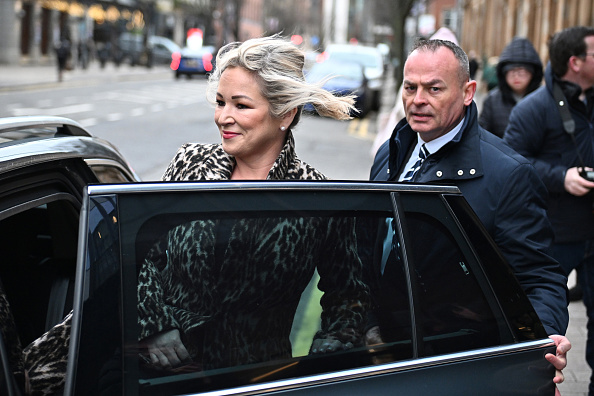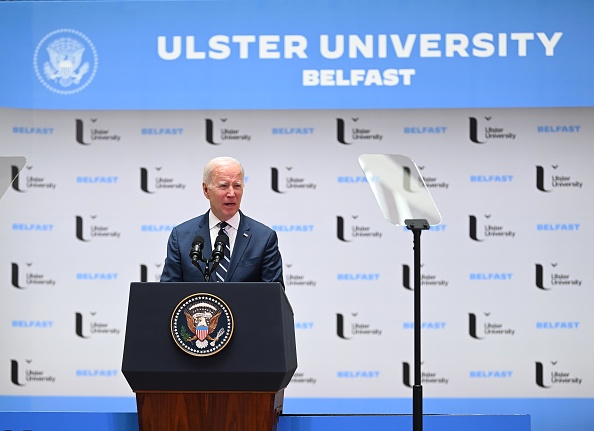It should have been an easy win, even for a government trailing by up to 10 per cent in the polls and facing an election next year.
Taoiseach Leo Varadkar’s two popular referendums in 2015 and 2018 showed a centre-right government could still make broadly popular moves on same-sex marriage and abortion.
Possibly aiming to harness some of that magic, the March 8 vote – called on International Women’s Day, no less – just aimed to remove dated 1930s language about women out of the Irish constitution written in 1937.
The result was a massive own goal: “a right kick in the teeth for the Government”, as Galway Fine Gael chairman Shane Dolphin admitted.
Slow turnout, apathy, and confusion characterised voting day, after prominent carers (including a senator), disability groups, and the Irish Council for Civil Liberties all rejected the language about government “striving” to support family carers.
An online story published on the eve of the election by an Irish news website, The Ditch, revealed unpublished legal advice the government had received from attorney general Rossa Fanning.
It was completely unclear, it turned out, how the courts would interpret the new language the government was asking people to write into the constitution.
“There is therefore uncertainty as to the likely meaning and effect of an obligation to ‘strive’,” the attorney general wrote to disability minister Roderick O’Gorman.
Varadkar’s coalition partners, Micheál Martin’s Fianna Fáil and Eamon Ryan’s Greens, also supported a yes vote.
But so did the country’s chief opposition party, Mary Lou McDonald’s Sinn Féin. On the yes side too from the opposition benches were Labour, the Social Democrats, and People Before Profit.
Groups including the National Women’s Council of Ireland and the Law Society of Ireland joined the campaign for yes.
Among parties in Ireland’s Dáil (or lower house), only socially conservative Aontú and right-wing Independent Ireland, with a combined four legislators, pushed for a no. So did the Roman Catholic Iona Institute.
For traditionalists, a “yes” vote in the care referendum would have removed the Constitution’s sole reference to mothers, in a result likely announced on Mother’s Day.
More damningly, leading disability advocates began attracting attention online by calling for no votes on the care referendum.
Saying the state would “strive” to support family carers could exempt the government from providing services for people with disabilities, argued Senator Tom Clonan, whose 22 year-old son Eoghan has a rare neuromuscular disease.
“We’re the only jurisdiction in the European Union where disabled citizens do not have the legal rights to live independently in the community, like in an accessible home with a care package,” Senator Clonan told the Irish Mirror.
A group of Lawyers for No argued for no votes, saying the referendums would put into the constitution poorly thought through language, that no one seemed sure how the courts will apply.
There was a pair of votes on Friday.
One – a family referendum – added a clause that the family could be “founded on marriage or on other durable relationships”, and deleted another saying the family was founded on marriage.
But it kept the Constitution’s existing wording that the state pledged to “guard with special care” the institution of marriage, and “protect it against attack”.
Critics said it was not clear what a “durable relationship” was, and what rights putting the words into the constitution would give them – in immigration or inheritance, for example.
The second – a care referendum – proposed the removal of two articles. One said the state would try to ensure women would not be economically obliged to work, “to the neglect of their duties in the home”. The other said the “common good” relied on the support women gave the state by their lives “within the home”.
In its place, the care referendum inserted new language recognising how “care provided by family members to each other” contributes to the common good, and saying the state would “strive to support” the provision of this care within families.
Significantly, the proposals did not use the language that had come out from a citizen’s assembly in 2021, and a parliamentary committee in 2022.
Critics noted the words instead handed to voters to decide on received only a few hours’ debate in parliament, and no real committee scrutiny.
Maybe reflective of a general lack of attention for the referendum, not even Paddy Power had offered odds on the result.
Confusion drew low turnout, and in the end, pushed voters towards no.
“In my voting history, it’s the only one that’s not been clear cut for me. Bizarre feeling and frustrating,” said Kerry writer Úna-Minh Kavanagh on the eve of the referendum.
“And as for the design of the actual ballots, it couldn’t be less clear. What a mess from start to finish,” said Dr Eemer Eivers, an academic at Dublin City University, after she voted.
One young voter went on his lunch break.
“I was the only one in the polling station and considering there were 18-20 staff inside it was kind of creepy. I walked in and the room lit up,” he told Brussels Signal.
It “turns out that if you explain something poorly, word it confusingly and campaign for it half heartedly, people are disinclined to give you their support,” said Kerry barrister Conor Reidy.
“Imagine this current Irish government handling something really big like a poll on a United Ireland – we’d end up being ruled by Iceland for some reason,” said Joe O’Shea.
The result, a clear drubbing for a government already on the backfoot, manifested from an unlikely alliance between disability advocates and religious and social conservatives.
The government’s defeat showed voters rejected politicians’ “virtue signalling” on gender and the family, said Aontú leader Peadar Toibín.
Likewise, for the Irish Freedom Party, it was “a great day for the Irish people” with the defeat of “the entire political establishment”.
Officials counting votes in Dublin West found 11 miraculous medals among the constituency’s 111 boxes.
(At another point, a bat had to be rescued from the Limerick count centre: dubbed Count Refula by staff. There was no indication how it voted.)
In a subsequent blame game, Sinn Féin’s Mary Lou McDonald sought to lay blame squarely at the government, for the defeat of a campaign she too had backed.
“These were Government propositions, they chose the wording, they chose the timing. They went on a solo run,” she said.
Ultimately, while a stunning rejection of a governing coalition’s botched attempts to rewrite a constitution, the result also showed Ireland’s electorate was not in a “durable relationship” with any of Ireland’s political parties – Sinn Féin included.





